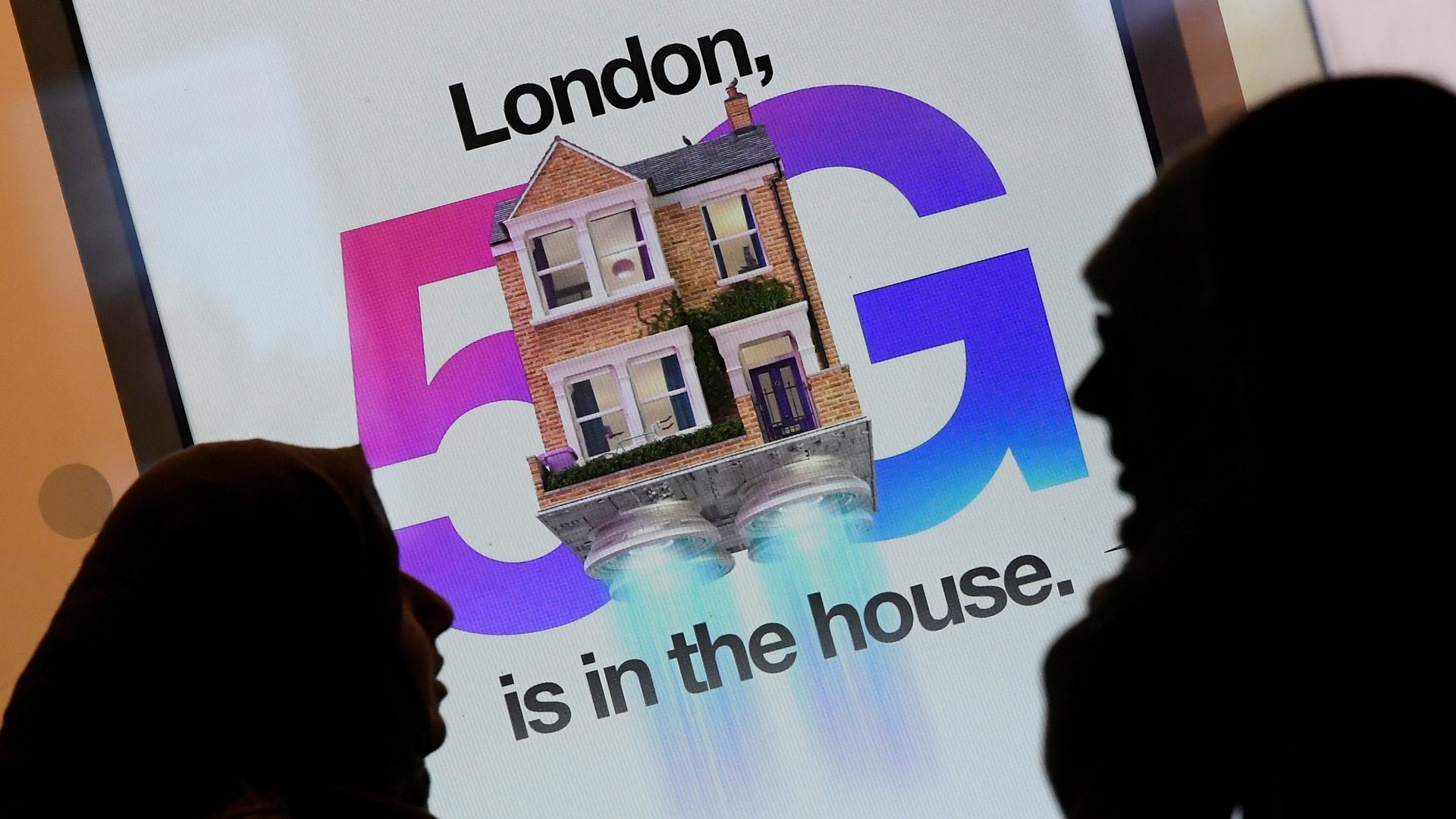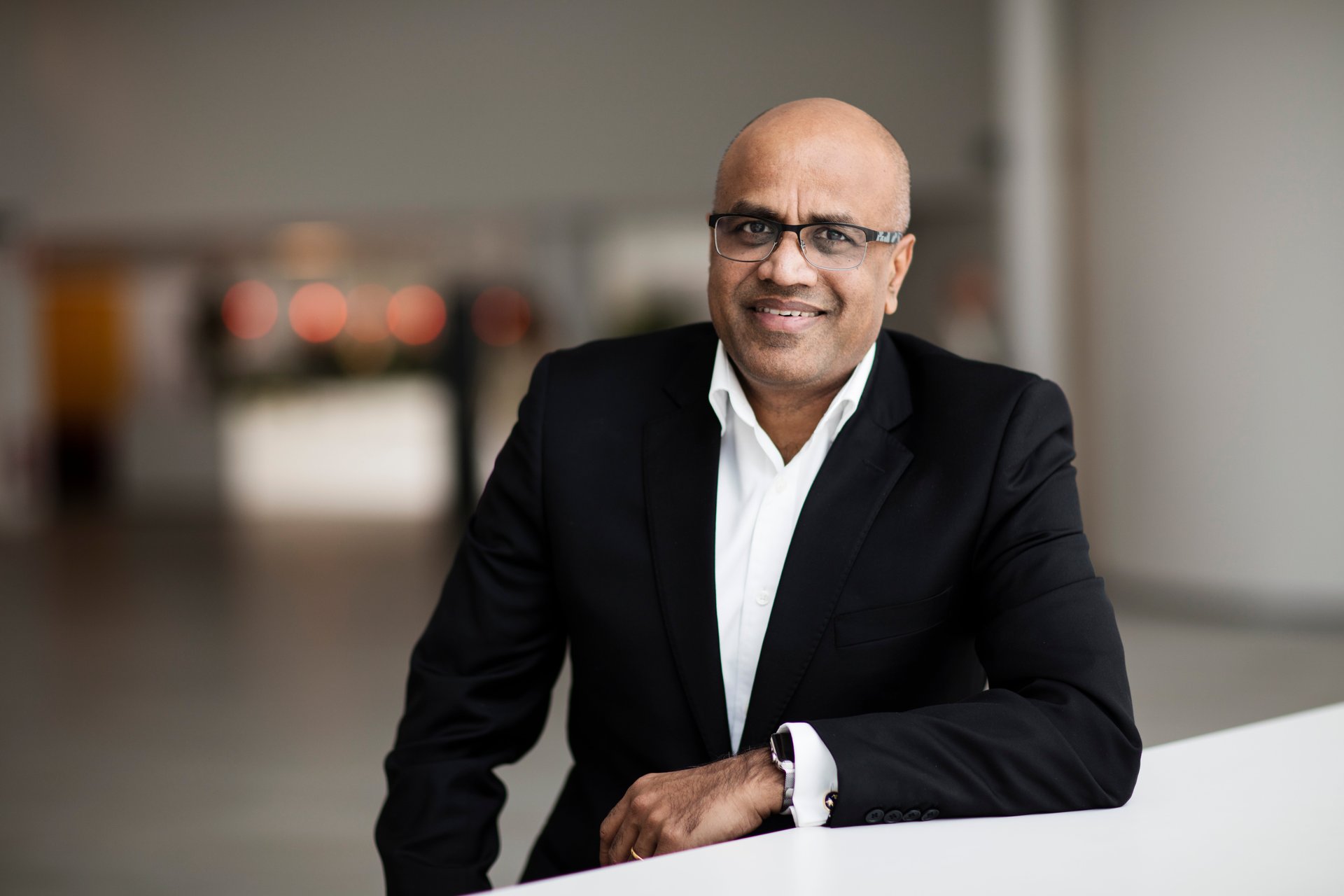An Ericsson executive explains why the UK is lagging behind on 5G
The geopolitical battle between China and the West is playing out in the global telecommunications market.


The geopolitical battle between China and the West is playing out in the global telecommunications market.
China is by far the world’s largest market for 4G and 5G, and the world’s largest 5G vendor, Huawei, is Chinese. Huawei has built a significant part of Europe’s 4G infrastructure and was set to play an even bigger role in 5G. But the US has targeted Huawei as part of its trade war with China, and believes that countries that use Huawei equipment in their telecom infrastructure are exposing themselves to the risk of spying and sabotage—accusations the company vigorously denies.
As a result, the US has prevented companies that use American technology from selling critical components to Huawei. The UK’s intelligence services determined that US sanctions have turned Huawei into too much of a security risk, and the government recently announced a ban on Huawei equipment in Britain’s 5G network by 2027 (Quartz member exclusive).
All in all, it’s an interesting time to be a Huawei competitor in Europe.
Arun Bansal is executive vice president of Swedish tech giant Ericsson and the market-area head for Europe. Ericsson is one of three major non-Chinese vendors for 5G technology, along with Finland’s Nokia and South Korea’s Samsung. Industry analysts say Ericsson is the best placed to snap up the contracts that Huawei will lose as a result of US sanctions.
Quartz spoke with Bansal about the UK government’s ban on Huawei and how it could impact Ericsson’s business, as well as his criticism of the UK’s lack of investment in technology.
This conversation has been condensed and edited for length and clarity.
Quartz: Let me know if you can’t hear me, because I’m in an area with pretty terrible cell phone signal.
Arun Bansal: So far, so good. But that’s the state of our connectivity in the UK, unfortunately.
Do you think the UK government’s decision to ban Huawei from its 5G network for security reasons was the right one?
AB: Whether the decision is right or not is not for me to comment. But that the decision is taken, taking away uncertainty, and hence starting the investment in infrastructure, is the right decision.
Post-Covid, one thing is very clear: Everybody needs good-quality connectivity. You just started the call by apologizing. If I was living in Singapore or Sweden, that would never happen. There is no 4G signal in almost 40% of the UK.
The UK’s ban on Huawei leaves operators with only two options for 5G equipment: Ericsson and Nokia. Oliver Dowden, the UK secretary of state for culture, media and sports, has argued that the UK has become “dangerously reliant on too few vendors.” What do you think of this criticism?
AB: We thrive on competition because that brings the best out of us in technology and innovation and cost competitiveness. When 2G was invented in 1990, there were 20 vendors. When 3G came that became 15, then 4G came, that became less than 10. And now, when 5G is coming, there are five vendors. There’s Nokia and Samsung also, which is not a high-risk vendor. So there are three non-high-risk-vendors and two from China.
[5G] requires an investment of almost €3.5 billion ($4.1 billion) to €4 billion every year in R&D. And not every company can afford to do that in a highly competitive environment. If there is no business in Europe, there will not be any new company coming in because they cannot afford a €3.5 billion to €4 billion investment in R&D. If Europe has an ambition to create more domestic competitors, first Europe has to invest in technology.
Telecom operators in the UK argued the Huawei ban could cause massive financial losses and blackouts. Were those fears overblown?
AB: In the last twelve months, Ericsson has done roughly 100,000 site swaps globally of different vendors and we are doing massive swaps in Norway and Denmark with no blackouts. This perception that there will be massive blackouts is totally unfounded. When you are swapping equipment, it’s like shifting electricity from one plug to another plug. You will always have few minutes of down time. So when you are doing the swap-out, it might be from a few minutes to a few hours, depending on the site location and how you do it.
And how fast can Ericsson do a swap-out?
In Denmark we are doing around 3,500 sites and we will complete it in nine months. We have done in Italy more than 8,000 site swaps in 11 months.
What are the factors that mostly influence that timeline?
Mostly access to the site, which is determined by the local council or municipalities who need to give approval to be able to access the site, based on if the sites are in a government building or in a school area or a playground area.
In China, they deployed 200,000 sites in 10 months. It’s a totally different game.
Why is it so much faster in China?
AB: Because China, the US, and some countries in Asia treat connectivity as national critical infrastructure. And that’s why Europe is lagging behind in connectivity already on 4G. I feel ashamed living here sometimes that the UK is even lagging behind Peru and Albania. When you go in some areas, you don’t even get LTE or 4G signal on your phone. This, in 2020, is unheard of.
Europe has not invested in connectivity and infrastructure. Once a country decides that this is equally critical to education, equally critical to healthcare, then I think the country can fast-forward.

Why does Huawei have a larger market share in 5G than you do?
AB: I can speculate why they have more, but I can confirm why we have less. We started to diversify ourselves and we lost focus five to seven years back in our core portfolio. We refocused our business strategy in 2017 when our new CEO came and we started to invest much more in our core portfolio.
I’m fairly confident that we can win business on our own merit and we are winning business on our own merit, for example in Latin America, where there is no such geopolitical discussion.
Where does Ericsson manufacture its 5G base stations?
AB: We have factories in Europe, in Estonia and in Poland, which predominantly covers the Europe supply chain; we have a factory in Brazil, which covers predominantly Latin America. Then we have factories very recently opened in the US, that will get to the US market. We have a factory in India, which caters to the India market, and then we have a factory in China, which predominantly takes care of the China market. So we have six factories around the globe, geographically spread out.
Do you think Ericsson’s reliance on its factory in China is a reason for concern for countries who want to strip Chinese equipment from their networks?
AB: Of course we will respect any government regulation, so if the government of the UK or any of the EU countries requires that all the supply of 5G equipment has to happen within Europe, we are prepared to meet that requirement. We can manage that through our Estonia and Poland supply chains.
Ericsson has made considerable efforts to try to enter the Chinese market. How important is China in Ericsson’s future plans?
AB: It’s very important for us. Almost 40% of the world market is China when it comes to RAN (radio access network) technology. So even though we are a smaller player among the two other local competitors (editor’s note: Huawei and ZTE), that local share is more or less the same as Europe for us. And China normally is always leading in new deployment. So it’s also a competitive advantage from a technology point of view.
What is your share of the Chinese market?
AB: Around 10%.
So your 10% market share in China is as big or bigger than your entire market share in Europe?
AB: Yes.
Wow. And when it comes to the future evolutions of these technologies, there’s been a lot of hype surrounding the potential of Open Radio Access Networks (OpenRAN), a technology that would enable operators to deploy 5G technology using components and software from different vendors. How is Ericsson positioning itself vis-à-vis open-architecture technology?
AB: We are actively participating in O-RAN. It’s not a new technology per se, it’s a new standard body which will open up different interfaces and we are actively participating in that. And when O-RAN is mature enough and the performance is as good as 3GPP and the cost points are good enough, we will make sure that we have a portfolio that is competitive in that field.